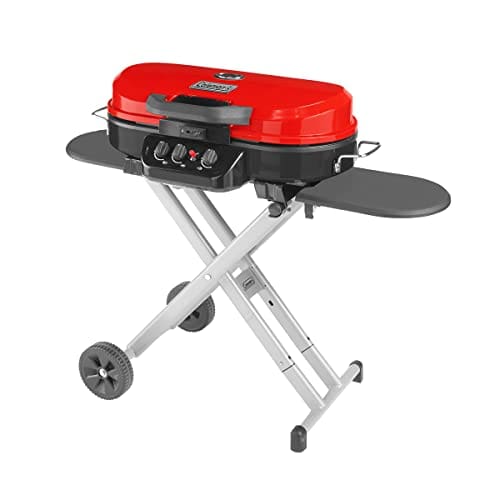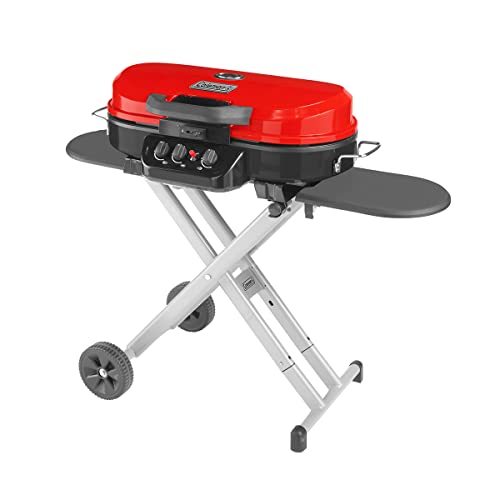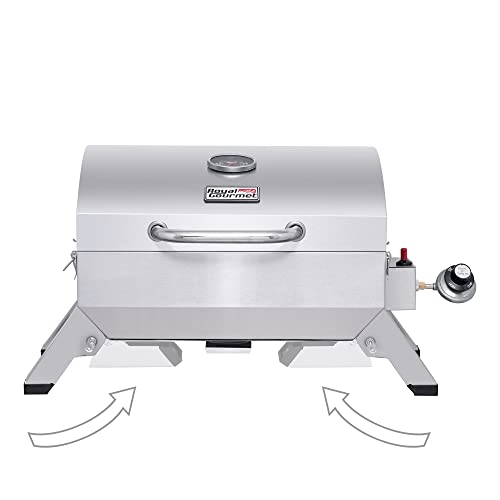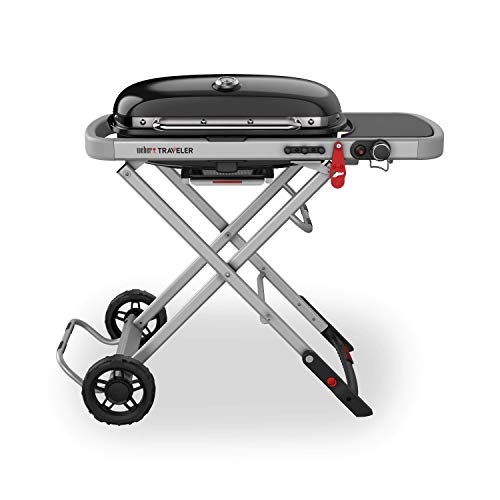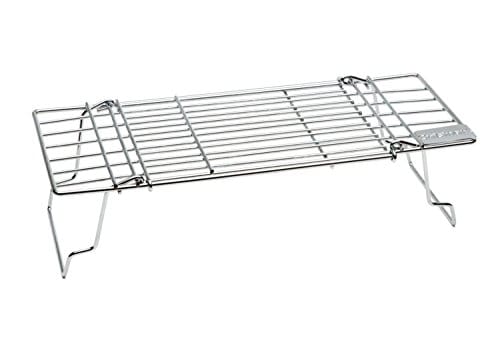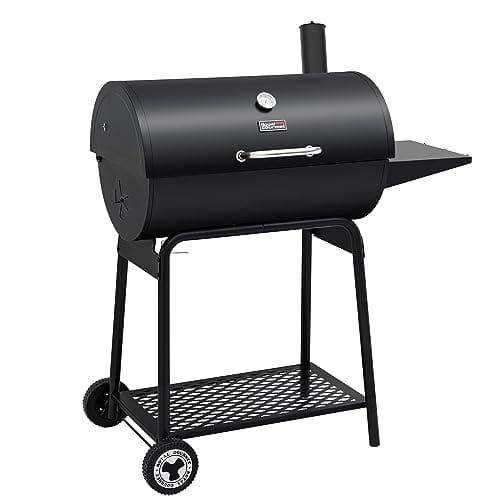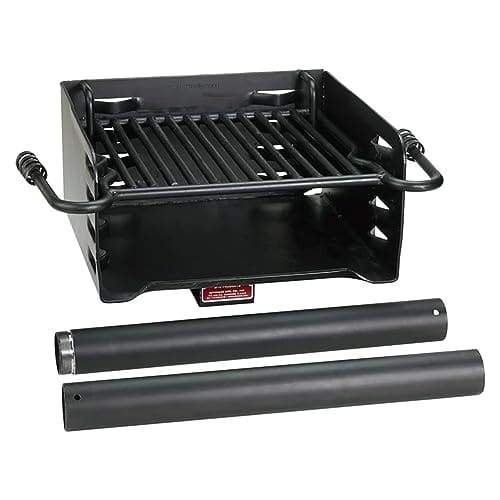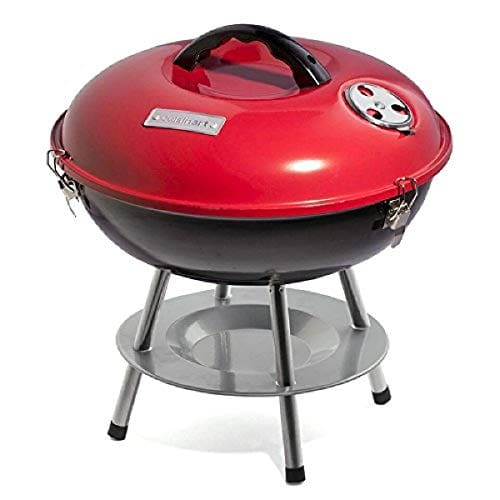The Pros and Cons of Portable Gas Grills
Are you a fan of outdoor cooking and looking for a convenient grilling option? If so, portable gas grills might just be the perfect solution for you. Whether you’re going camping, tailgating, or simply having a picnic in the park, these compact grills offer the convenience and ease of use that you need. But before you rush out to purchase one, it’s important to understand both the advantages and potential drawbacks of these portable cooking appliances. In this blog post, we will take a closer look at the pros and cons of portable gas grills, helping you weigh your options and make an informed decision. So, let’s get grilling!
Top-Rated Portable Gas Grills for On-the-Go Grilling
Convenience and Portability
Portable gas grills are revolutionizing the way we enjoy outdoor cooking. These compact and lightweight grills offer a level of convenience and portability that was previously unheard of. Whether you’re embarking on a camping trip, organizing a picnic, tailgating at a sports event, or simply grilling in your backyard, a portable gas grill allows you to bring the joy of grilling wherever you go. In this blog section, we will explore the many benefits and advantages of using a portable gas grill.
Easy Transportation and Set-Up
One of the biggest advantages of a portable gas grill is its ease of transportation. These grills are designed to be compact and lightweight, making them a breeze to carry and transport. Forget about struggling with a heavy and bulky grill, as a portable gas grill fits conveniently in the trunk of your car or can be carried effortlessly to your desired location.
Setting up a portable gas grill is also a breeze. Most models come with foldable legs or wheels, allowing for quick and easy assembly. You can have your grill up and running in a matter of minutes, without the need for any specialized tools or complicated processes. Simply unfold the legs, connect the gas source, and you’re ready to start grilling!
Versatility in Outdoor Cooking
Portable gas grills offer a level of versatility that is unmatched by other grilling options. Unlike charcoal grills that require charcoal briquettes and a chimney starter, or traditional gas grills that require a dedicated outdoor kitchen or connection to a gas line, portable gas grills are self-contained. This means you can enjoy the convenience of grilling anywhere, without the hassle of carrying extra equipment or setting up a permanent grilling area.
Benefits of Using a Portable Gas Grill
To help you fully understand the advantages of using a portable gas grill, here are some key benefits:
- Compact and lightweight design for easy transportation and setup.
- No need for charcoal or specialized equipment, making it cost-effective.
- Instant ignition and precise temperature control for effortless grilling.
- Versatility to cook different types of food, from burgers to vegetables.
- Easy to clean and maintain, with removable grates and drip trays.
Comparison table
For a quick comparison of important features, here’s a comparison table highlighting the key points:
| Feature | Portable Gas Grill | Charcoal Grill | Traditional Gas Grill |
|---|---|---|---|
| Size and Weight | Compact & Lightweight | Bulky & Heavy | Varies |
| Setup Time | Quick and Easy | Time-consuming | Time-consuming |
| Fuel Requirement | Propane Gas | Charcoal briquettes | Natural Gas or Propane |
| Temperature Control | Precise and Instant | Less Control | Precise Control |
| Versatility | Cooks Various Foods | Traditional Flavor | Cooks Various Foods |
| Maintenance | Easy to Clean | Ash Cleanup Required | Regular Maintenance |
Quick and Easy Setup
One of the main advantages of portable gas grills is their quick and easy setup. Unlike traditional charcoal grills, you don’t need to spend time lighting charcoal and waiting for it to heat up. Portable gas grills typically use propane tanks, which can be easily connected and provide instant heat. This means you can start grilling your favorite foods within minutes.
Instant Heat with Propane Tanks
Key Point: Portable gas grills use propane tanks, ensuring quick and efficient heat to start grilling right away.
- Propane tanks can be easily connected to portable gas grills, allowing for instant heat.
- No need to wait for the charcoal to heat up or risk uneven cooking due to inconsistent heat.
- Perfect for impromptu backyard gatherings, camping trips, tailgating events, or picnics.
No Hassle with Lighting Charcoal
Key Point: Unlike charcoal grills, portable gas grills eliminate the need for lighting charcoal, making the setup process much easier.
- Forget about dealing with messy charcoal and the hassle of getting it lit.
- Save time by skipping the traditional charcoal lighting process.
- Enjoy a more convenient and hassle-free grilling experience.
Start Grilling Within Minutes
Key Point: With quick and easy setup, you can have your favorite foods sizzling on the grill within minutes.
- Connect the propane tank to your portable gas grill and turn on the burners.
- The instant heat from the propane allows you to start grilling promptly.
- No need to wait for the grill to reach the desired temperature, reducing time spent on food preparation.
Convenience on the Go
Key Point: Portable gas grills offer convenience and ease that make them ideal for outdoor cooking on the go.
- Lightweight and compact design allows for easy transportation and storage.
- Perfect for camping, boating, hiking, or any outdoor adventure.
- No need to compromise on the taste and quality of grilled food while away from home.
In conclusion, the quick and easy setup of portable gas grills is a significant advantage over traditional charcoal grills. With the use of propane tanks, there’s no need to spend time lighting charcoal or waiting for the grill to heat up. Within minutes, you can start grilling your favorite foods, making portable gas grills a convenient and time-saving option. Whether you’re hosting a backyard BBQ or enjoying a day in the great outdoors, a portable gas grill ensures you can enjoy delicious grilled meals with minimal effort.
Temperature Control and Cooking Efficiency
When it comes to outdoor cooking, portable gas grills have become increasingly popular due to their convenience and performance. One of the key advantages of using a gas grill is its superior temperature control and cooking efficiency. In this blog section, we will delve into the details of temperature control and its impact on cooking efficiency with portable gas grills.
Temperature Control: The Key to Precise Cooking
Control over temperature is essential for achieving perfectly cooked meals. Portable gas grills excel in this aspect, allowing users to adjust the heat precisely according to their requirements. Here’s how gas grills offer excellent temperature control:
- Adjustable Heat Settings: Gas grills usually feature dials or knobs that enable users to set the heat at various levels, ranging from low to high. This versatility allows for precise control, accommodating different cooking techniques and food items.
- Instant Heat: Unlike charcoal grills that require time to reach the desired temperature, gas grills provide instant heat at the push of a button. This eliminates the need for lengthy preheating and allows you to start cooking right away.
- Consistent Heat Output: Once you set the desired heat level, gas grills maintain a stable temperature. The consistent heat output ensures even cooking throughout the grilling process, preventing undercooked or overcooked areas.
Enhanced Efficiency in Cooking
Besides the precise temperature control, portable gas grills offer several advantages that contribute to enhanced cooking efficiency. Below are the key points to consider:
- Even Heat Distribution: Gas grills are designed with multiple burners or heat zones, resulting in even heat distribution across the cooking surface. This eliminates hot spots and allows you to cook multiple items simultaneously without worrying about inconsistent cooking.
- Faster Cooking Times: Gas grills generally provide faster cooking times compared to charcoal grills. The instant heat and consistent temperature facilitate quicker cooking, reducing the overall cooking duration. This feature is particularly beneficial when you have limited time or are hosting a gathering with hungry guests.
- Versatile Grilling Options: With precise temperature control, gas grills offer versatility in cooking various types of food. Whether it’s delicate fish, juicy steaks, or vegetables, you can easily adjust the heat to accommodate different ingredients and achieve the desired outcome. This versatility makes gas grills suitable for a wide range of recipes and cooking styles.
Limited Cooking Area and Fuel Dependency
When it comes to portable gas grills, one of the main drawbacks is their limited cooking area. These grills are designed to be compact and easily transportable, which means they often sacrifice cooking space in order to achieve their compact size. This can be a challenge, especially when cooking for a large group or hosting a backyard barbecue.
Key Points:
- Portable gas grills have a smaller cooking area compared to larger stationary grills.
- The limited cooking area can make it difficult to cook for a large group.
- Compact size sacrifices cooking space.
Benefits of Larger Cooking Area:
- More space for grilling multiple items simultaneously.
- Ability to cook for larger groups or parties.
- Can accommodate bigger cuts of meat or whole chickens.
Comparison Table:
| Factor | Portable Gas Grills | Stationary Grills |
|---|---|---|
| Cooking Area | Limited | Generous |
| Capacity | Small groups | Large groups or parties |
| Versatility | Limited | Wide range of options |
| Mobility | Easy to transport | Permanent installation |
Fuel Dependency
Another consideration when it comes to portable gas grills is their dependency on fuel. Portable grills typically use propane tanks or canisters as their source of fuel, which need to be regularly refilled or replaced. This ongoing cost and reliance on fuel can add up over time and may be a factor to consider when deciding on a grill.
Key Points:
- Portable gas grills are dependent on fuel, such as propane tanks or canisters.
- Fuel needs to be regularly refilled or replaced.
- Ongoing cost and dependency on fuel should be considered.
Benefits of Fuel Dependency:
- Easy to find and purchase fuel.
- Propane tanks provide reliable and consistent fuel source.
- Refilling or replacing fuel is a straightforward process.
Comparison Table:
| Factor | Portable Gas Grills | Stationary Grills |
|---|---|---|
| Fuel Type | Propane tanks/canisters | Gas line connection |
| Fuel Availability | Widely available | Requires gas hookup |
| Refill/Replacement Frequency | Regular | Infrequent |
| Mobility | Can be used almost anywhere | Limited to connected gas line |
In conclusion, portable gas grills may have limitations when it comes to cooking area and fuel dependency. However, they also offer convenience and mobility for those who enjoy grilling on the go. It’s important to consider your specific needs and priorities when choosing between a portable gas grill and a larger stationary option.
Making an informed decision about portable gas grills
In conclusion, portable gas grills can be a great option for outdoor grilling due to their convenience and efficiency. They offer easy setup, precise temperature control, and fast cooking times. However, it’s important to note that they may have limited cooking space and require a steady supply of fuel. Before making a decision, consider your specific needs and preferences. Happy grilling!
Frequently Asked Questions about Portable Gas Grills
What are the main features to consider when choosing a portable gas grill?
When choosing a portable gas grill, there are several main features to consider that will ensure you make the right choice. Here are some key aspects you should focus on:
- Size and Portability: Look for a portable gas grill that is compact and lightweight, making it easy to carry and transport. Consider your specific needs, whether you plan to take it camping, tailgating, or use it in your backyard.
- Cooking Surface: Check the size of the cooking surface, which determines how much food you can cook at once. Ensure it is sufficient for your needs, whether you’re cooking for yourself, a small family, or a larger group.
- BTU Output: British Thermal Units (BTUs) measure the heat output of a gas grill. Higher BTU ratings mean higher cooking temperatures and faster cooking times. Consider the BTU output, but also remember that other factors, such as cooking surface size, can affect heat distribution.
- Fuel Efficiency: Look for a gas grill that balances high performance with good fuel efficiency. This will help you conserve propane and make your grill last longer between refills.
- Construction and Durability: Pay attention to the materials used to construct the grill. Stainless steel or cast aluminum are typically more durable and resistant to rust and corrosion. Also, check if the grill has sturdy legs and a well-built frame to ensure stability during use.
- Ignition System: An efficient and reliable ignition system is crucial. Look for options such as push-button ignition or electronic ignition, which offer quick and hassle-free starting.
- Temperature Control: Choose a portable gas grill that provides good temperature control. Look for grills with adjustable burners or multiple heat zones, allowing you to cook different types of food simultaneously at different temperatures.
- Easy Cleanup: Consider grills that are easy to clean. Features like removable grease trays, drip pans, and dishwasher-safe parts make maintenance hassle-free.
- Additional Features: Some portable gas grills come with extra features like foldable side shelves, integrated thermometers, built-in storage for utensils, or even compatibility with additional accessories. Determine which features are important to you and align with your specific needs.
